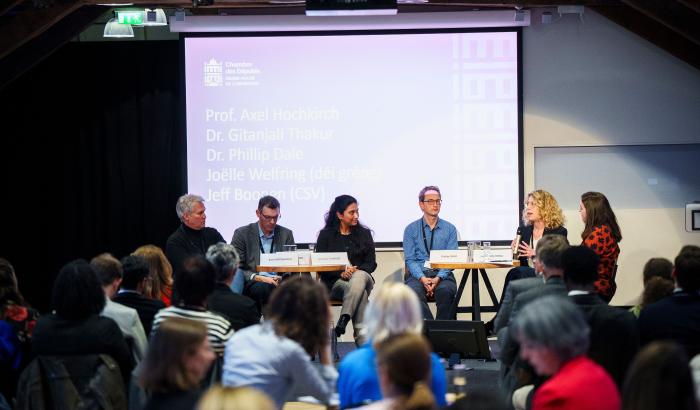
shotshop.com
Finding the right balance between epidemiological and economic risks
Managing the Covid-19 crisis is often perceived as finding the right balance between saving lives and saving the economy or, to put in crude terms, between epidemiologists and economists’ priorities. The problem is more subtle and complex. Without public health intervention, a collapse of the health care system alone could have generated panic, a systemic crash of the whole international debt network, and an even more severe economic recession. Conversely and despite epidemiological risks, restarting the economy is necessary to fund our health care system, to avoid systemic bankruptcies, and to limit the indirect effects that economic damages inflicted by the lockdown have on mental health and human lives.
Now that the virus transmission rates have reached very low levels, many containment measures have been lifted. Sound governance of the deconfinement plan requires anticipating the risk of a rebound in the infection curve and identifying appropriate accompanying measures. Collaborative research by economists and epidemiologists is more relevant than ever to highlight the costs and benefits of public actions.
A new model to nowcast and forecast the public health and economic effects of the crisis
Within the Task Force for the Coordination of the Public Research Sector in the Context of the Covid-19 Pandemic, economists and epidemiologists have developed a new model that links the two facets of the Covid-19 crisis. Parameterized on the Luxembourg’s economy and accounting for crossborder labor movements within the Greater Region, this epidemionomic model is used to nowcast and forecast the public health and economic effects of the crisis week after week throughout 2020. The nowcasting part of the analysis reveals that each week of lockdown reduces national output by about 28% (and annual GDP by 0.54%).
During the lockdown, the most adversely affected industries were the construction sector, HORESCA, and wholesale and Retail Trade Services. In an economy heavily relying on skill-intensive services, the study also shows that the role of teleworking has been instrumental to limiting the weekly economic output loss (almost by one half) and the propagation of the virus. While it is a good time for lifting containment measures, the forecasting part of the analysis highlights the uncertainty surrounding the future evolution of transmission rates on the job and outside the labor market. There is a significant risk that resuming social activities and, to a lesser extent, increasing the density of employees at the workplace may induce a rebound in the infection curve. To avoid such a rebound, our researchers make five policy recommendations.
Infobox
The publication is co-authored by Dr. Michal Burzynski and Prof. Frédéric Docquier, researchers at the Luxembourg Institute of Socio-Economic Research (LISER).
For more details, see the publication on www.liser.lu.
BURZYNSKI Michal, DOCQUIER Frédéric. Recovering from the Covid-19 crisis. Insights from an Epidemionomic Approach. LISER, 2020, Policy Brief n°6, 6 p.
Author: LISER
Editor: Melanie Reuter (FNR)




